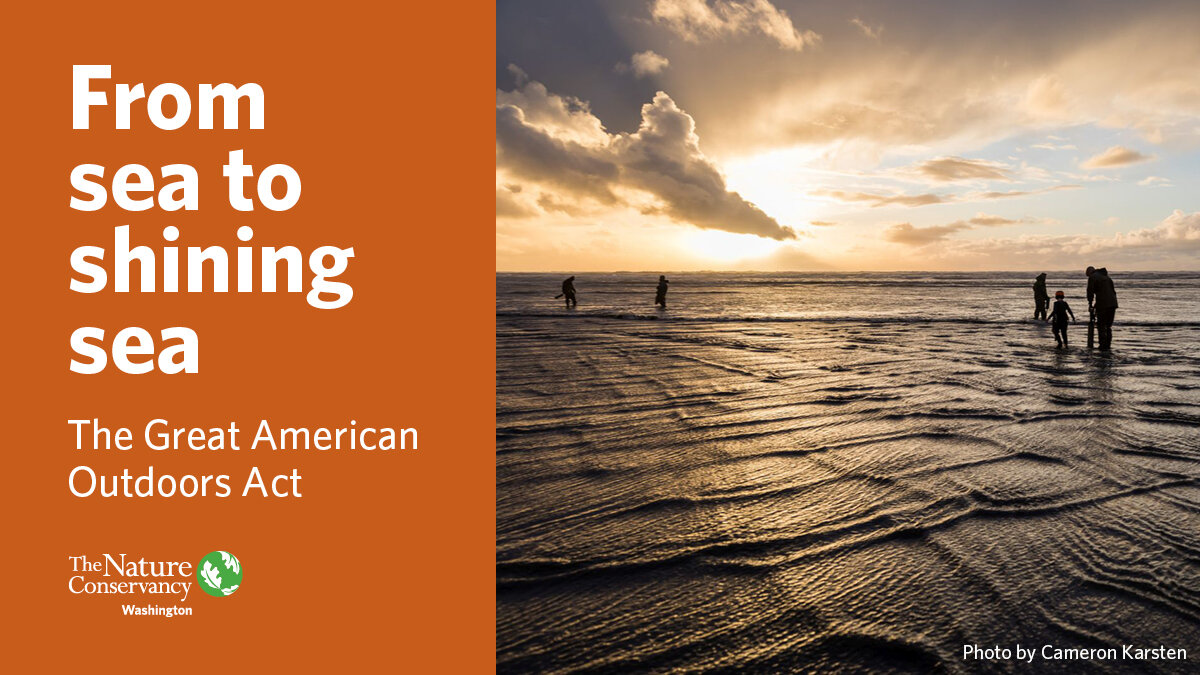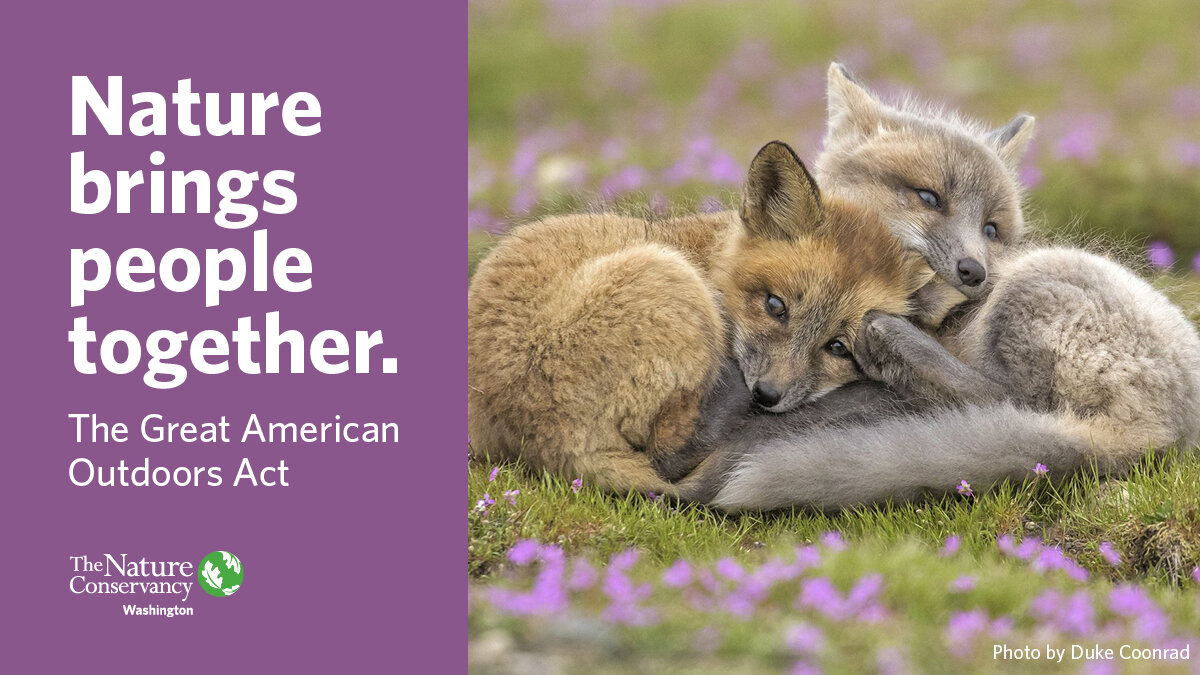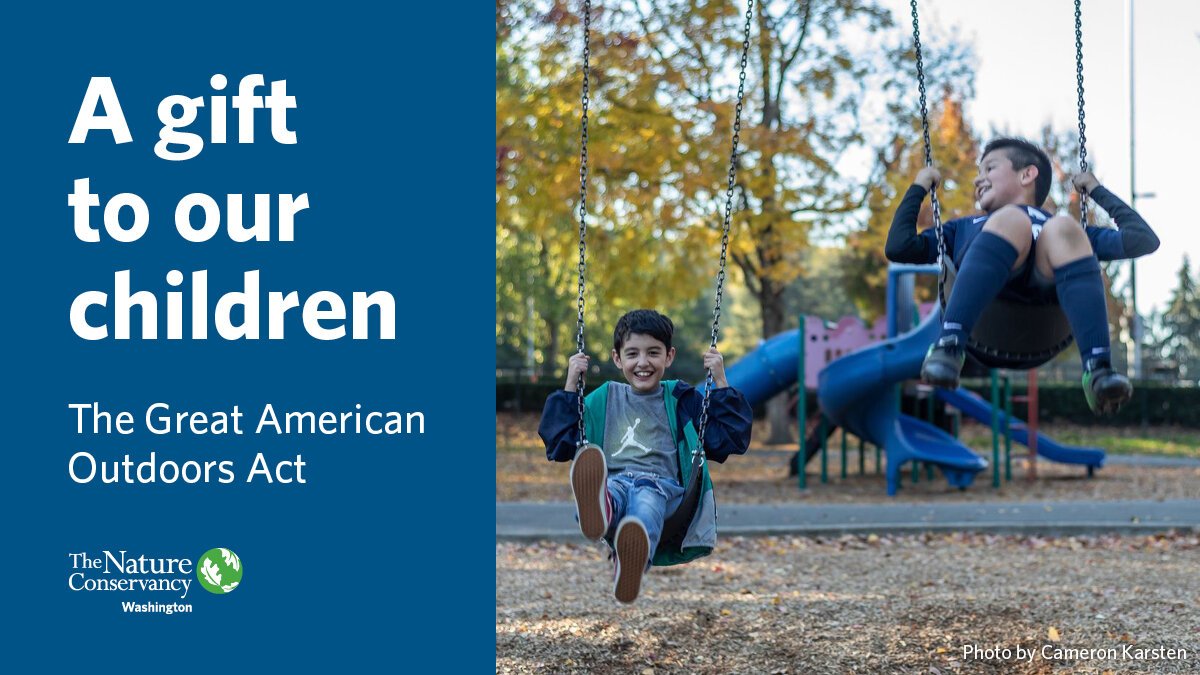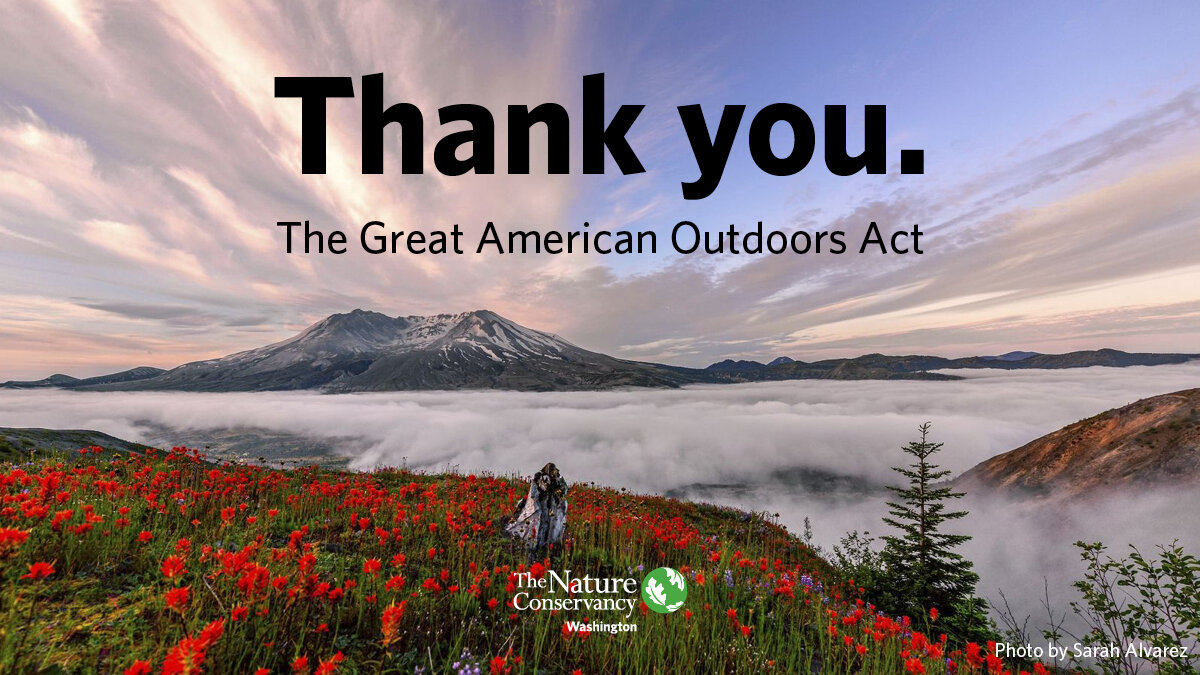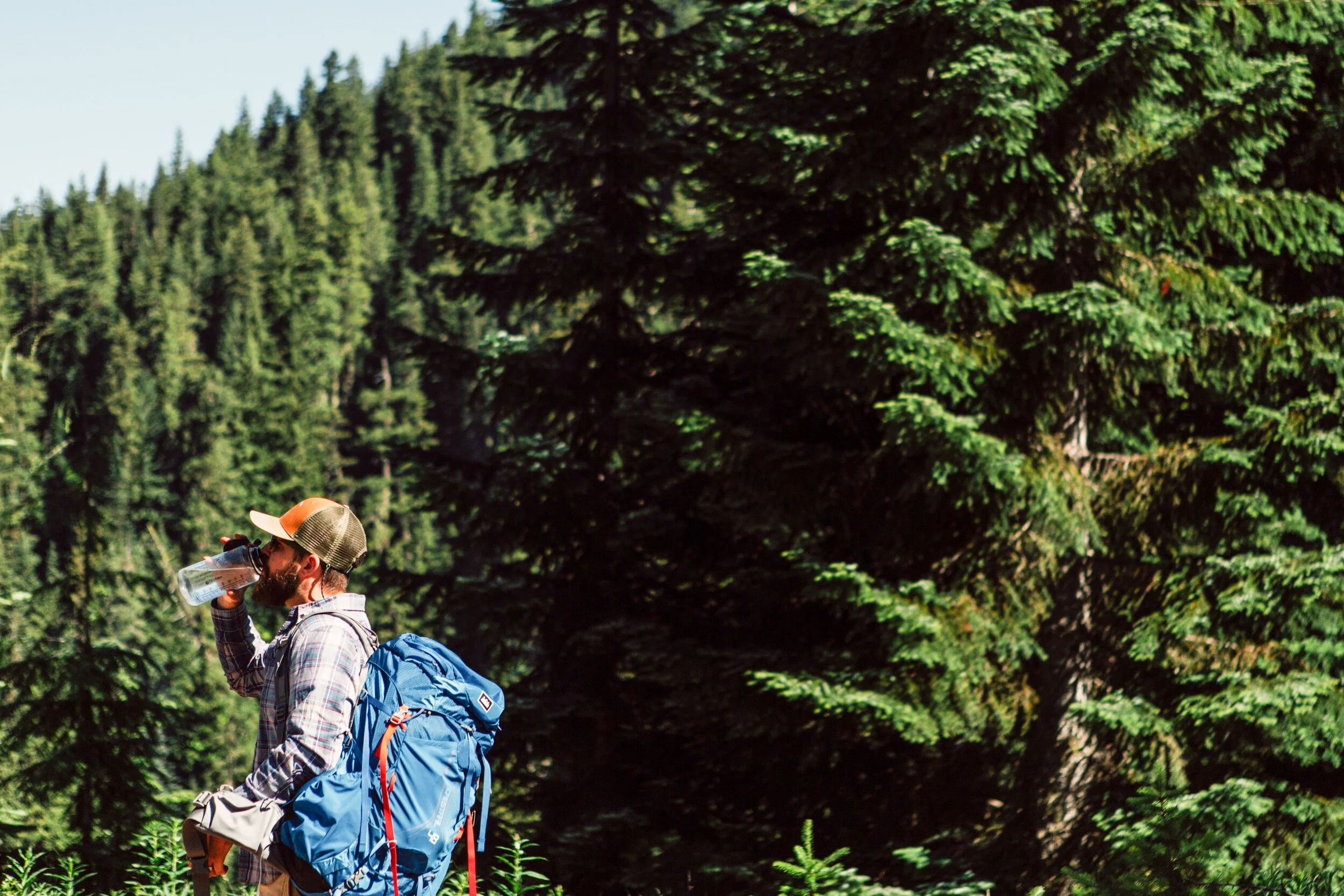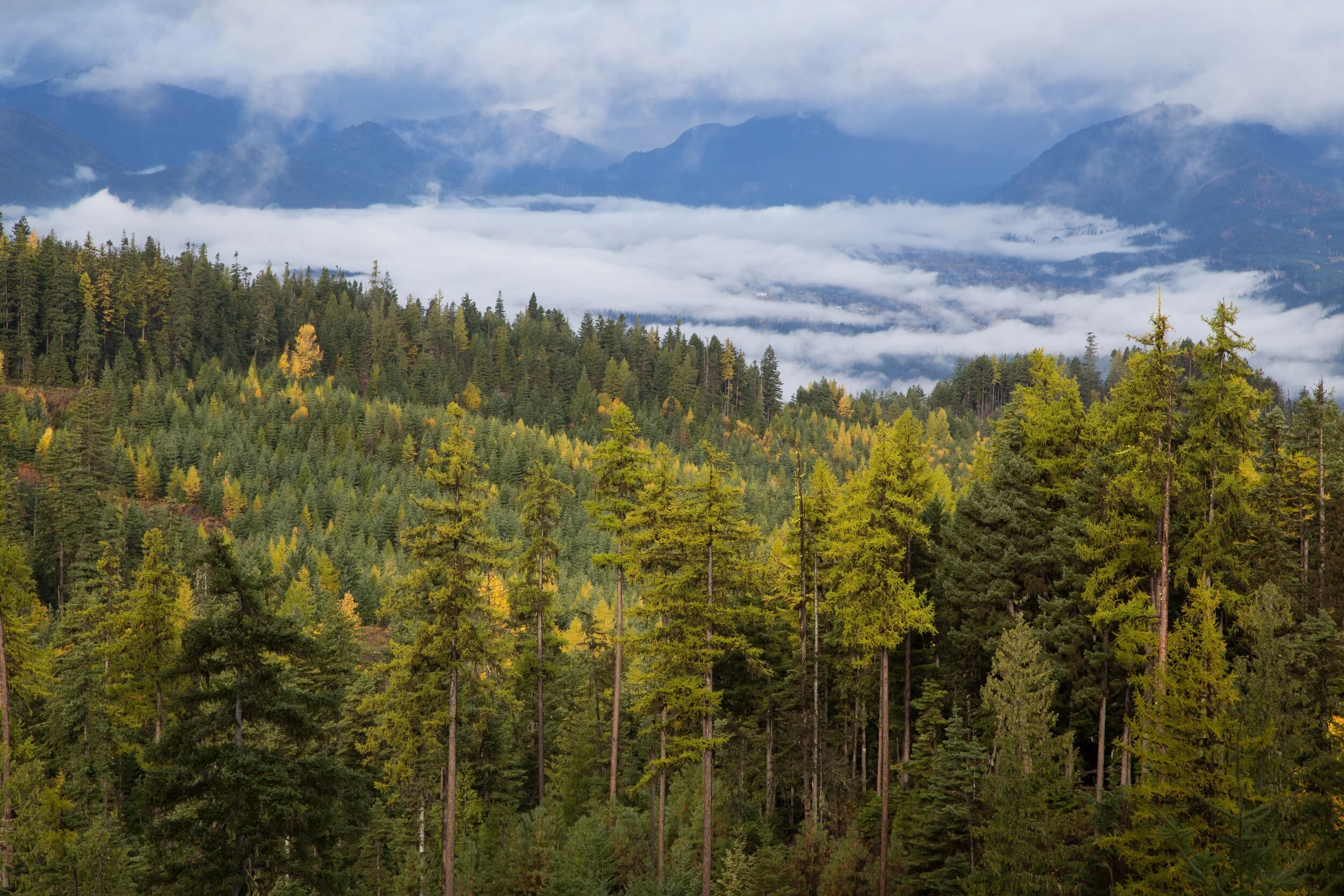The Great American Outdoors Act became the law of the land (and water) this morning, sealing a huge bipartisan victory for nature and people that has been decades in the making.
What does this mean for us in Washington state? A lot.
Dedicated readers know from more than a dozen LWCF-related blog posts over the last five years that the Land and Water Conservation Fund has supported projects all over the state since its creation in 1964. During that time, Congress only appropriated the approved $900 million in funding for LWCF twice; most years the Fund received less than half that level. Now, with permanent, dedicated funding, LWCF’s federal and state-level programs will support outdoor access, working forests, urban parks, trails and historic landmarks at full strength for generations to come.
Washingtonians and visitors can look forward to this funding touching down in all corners of our state. From Willapa National Wildlife Refuge, Yacolt Forest and the Dewatto Headwaters Forest in the west, the Central Cascades Forest in Kittitas County, to the Turnbull National Wildlife Refuge south of Spokane, the lands and waters protected by the LWCF’s federal program are home to rare and endangered fish and wildlife populations, work sites for sustainable forest management and a physical and spiritual escape for adventurers each weekend.
We still have lots of work to do to make outdoor access a reality for all in Washington: it’s not practical for everyone to hop in a car to visit a far-away national park or forest. And access is only one part of the challenge: many of our Black, Indigenous and other neighbors of color don’t feel safe in the outdoors - generational trauma and racism present major obstacles to enjoying nature. This has to change.
The access piece of that puzzle is a significant step closer to being solved with the Great American Outdoors Act: LWCF’s large stateside program, consisting of projects sponsored by cities, parks departments and other local entities, will benefit communities from Anacortes to Zillah, making close-to-home nature a reality for thousands more Washingtonians.
This year’s list includes establishment or revitalization projects on:
playgrounds and parks for baseball, basketball and soccer in Ilwaco, Lakewood, Gig Harbor, Othello, Poulsbo, Mountlake Terrace, Zillah and Seattle
community pools in Garfield, Pierce County and on Whidbey Island
boating access in Snohomish and Skagit Counties
trailheads in College Place, Renton, Covington and King County
and many more parks, campgrounds, playfields and public-access points across Washington!
Safety in the outdoors for everyone - no exceptions - has been a much tougher challenge. Today’s new law does not purport to solve that. This change must come in the hearts of all Americans, through examining our own internal biases and dismantling the structural racism that has influenced conservation just as much as other aspects of our society. We’re working on it, and we hope you are too.
A lot is happening in our country this year. This moment of cultural reawakening, as more and more Americans face the difficult truths of our past and present, comes when many of us have spent much more time at home than in past springs and summers. We yearn to get outside - to see friends, to have adventures, to take in the fresh air, to find inspiration, to find solace.
As more and more visitors seek to enjoy visiting America’s national parks, forests, monuments and landmarks, agencies have struggled to keep up with repairing roads and bridges, upgrading campground facilities and utility systems and improving trails and buildings. The needs amount to more than $427 million at Washington’s national parks and preserves, including $186 million at Mount Rainier, $126 million at Olympic, and significant sums at Ebey’s Landing, Fort Vancouver and others. The Great American Outdoors Act tackles this maintenance backlog with funding - in addition to what it provides for LWCF.
Washingtonians - like our neighbors across the country - are recognizing more than ever how valuable our public lands and waters are, not just to our to our economy, but to our spirits. Thank you for contacting your members of Congress to urge passage of the Great American Outdoors Act this year, and for your years of effort in support of conservation funding and LWCF.
It’s been a long time coming, and there’s still work to be done, but today we celebrate a moment of unity. Let’s thank Congress for coming together across significant divides to make the Great American Outdoors Act and the Land and Water Conservation Fund a permanent part of conservation in our country.


